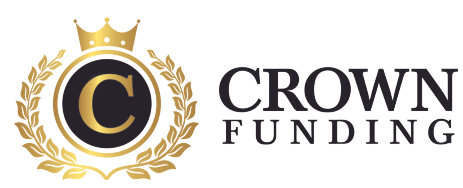
How Does a Private Mortgage Work in Canada?
Navigating the mortgage landscape in Canada can be challenging, especially if you don’t meet the traditional lending criteria. For many, private mortgage in Canada presents an alternative route to homeownership. But how exactly does a private mortgage work in Canada? Let’s explore the intricacies of this financing option, helping you make informed decisions for your property needs.
What is a Private Mortgage?
A private mortgage is a loan secured by real estate, provided by an individual or a group of investors rather than a traditional financial institution like a bank or credit union. Private mortgage lenders in Canada often include individuals, mortgage investment corporations (MICs), or specialized private lending companies. These lenders are typically more flexible in their lending criteria, making private mortgages an attractive option for those who may not qualify for conventional financing.
Who Can Benefit from a Private Mortgage?
Private mortgages are ideal for borrowers who face difficulties securing a loan from a bank due to various reasons:
- Self-Employed Individuals: Traditional lenders may view irregular income as risky, making it harder for self-employed people to get approved for a mortgage.
- People with Poor Credit: Those with a less-than-perfect credit history often struggle to get a loan from banks, but private lenders may be more willing to take on the risk.
- Real Estate Investors: Investors seeking quick financing to capitalize on opportunities may turn to private mortgages due to their faster approval processes.
- People with Unconventional Properties: Properties that don’t fit the typical criteria for a bank mortgage (like a fixer-upper or a unique commercial property) might still be financed through a private mortgage.
How Does the Application Process Work?
The application process for a private mortgage in Canada is generally more straightforward than traditional mortgages. Here’s how it typically unfolds:
- Initial Consultation: You start by consulting with a private mortgage broker or lender who assesses your financial situation, property value, and the amount you wish to borrow.
- Property Appraisal: The lender will require an appraisal of the property to determine its current market value. This step is crucial since private mortgages are heavily based on the property’s equity rather than your income or credit score.
- Approval: If your property has sufficient equity and the lender is comfortable with the risk, your mortgage application will likely be approved. This process is often quicker than traditional lenders, taking days rather than weeks.
- Terms and Conditions: Private mortgages typically have shorter terms (6 months to 3 years) and higher interest rates than conventional mortgages due to the increased risk to the lender. You’ll also need to discuss the repayment schedule, which can vary depending on your agreement.
- Closing: Once the terms are agreed upon, the loan is funded, and you receive the mortgage amount. You can use these funds to purchase a property, refinance an existing mortgage, or consolidate debt.
What Are the Costs Involved?
Private mortgages come with higher interest rates than traditional mortgages, often ranging from 8% to 18%. Additionally, there are other costs to consider:
- Lender Fees: These are typically a percentage of the loan amount.
- Broker Fees: If you use a broker to connect with private lenders, there may be additional fees.
- Legal Fees: Like any mortgage, there are legal costs for drafting and registering the mortgage documents.
- Appraisal Fees: The cost of the property appraisal will be your responsibility.
What Are the Risks?
While private mortgages can be an excellent option for those who cannot secure traditional financing, they come with risks:
- High Interest Rates: The cost of borrowing is significantly higher, which can lead to financial strain if not managed carefully.
- Short Terms: The shorter loan terms may require you to refinance or repay the loan in full at the end of the term, which can be challenging.
- Foreclosure Risk: If you’re unable to meet the repayment terms, the lender has the right to foreclose on your property.
How to Manage a Private Mortgage in Canada Responsibly
To make the most of a private mortgage, consider the following:
- Budget Carefully: Ensure you can handle the higher interest payments without compromising your financial stability.
- Plan for the End of the Term: Have a strategy in place for when the term ends, whether it’s refinancing, selling the property, or paying off the mortgage.
- Work with a Reputable Broker: A knowledgeable mortgage broker can connect you with trustworthy lenders and negotiate favorable terms.
Conclusion
Private mortgages in Canada provide a lifeline to those who need flexible financing options. By understanding how private mortgages work, the associated costs, and the potential risks, you can make informed decisions that align with your financial goals. Whether you’re self-employed, have poor credit, or simply need quick financing, a private mortgage could be the solution you’ve been searching for.
